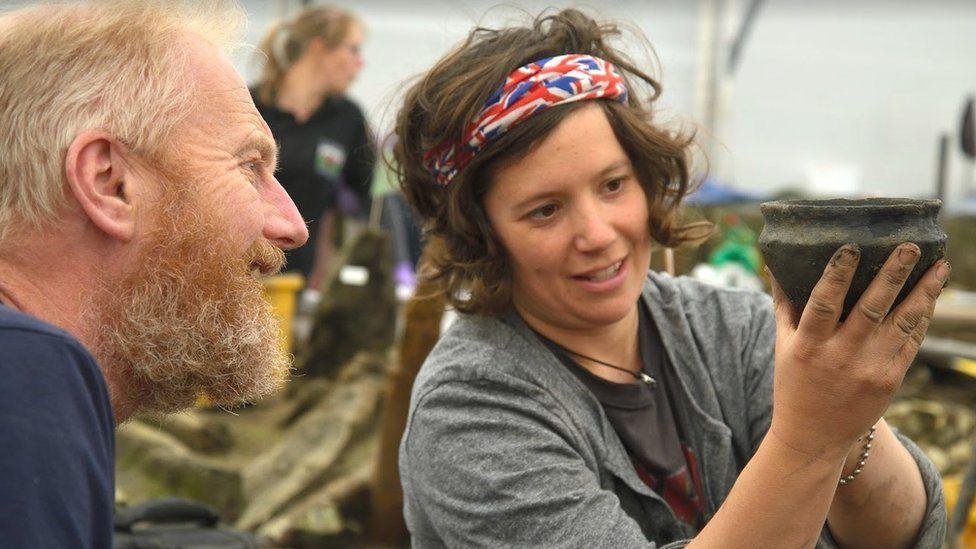Popular 'Britain's Pompeii' display extends run
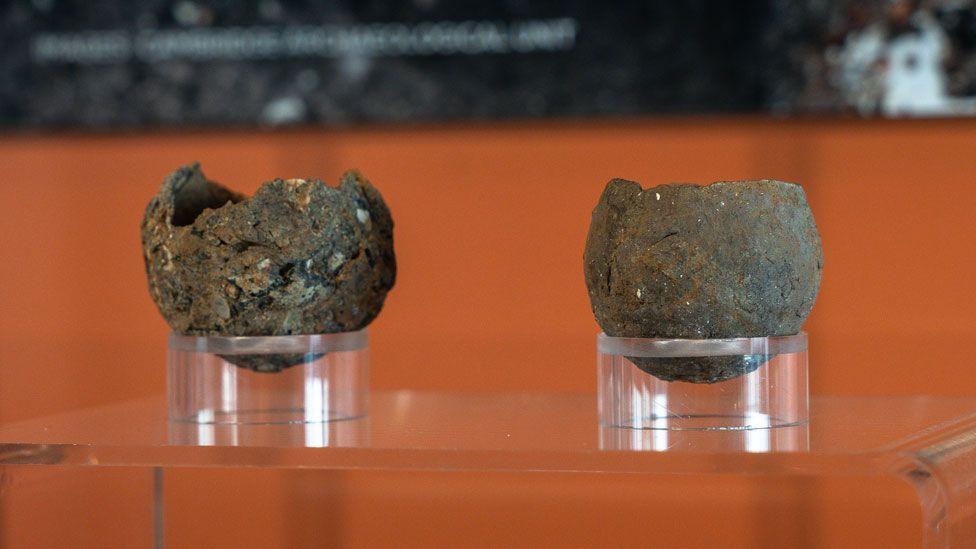
The free exhibition of 3,000-year-old artefacts has attracted the museum's biggest visitor numbers for eight years
- Published
An exhibition of 3,000-year-old artefacts discovered at a site dubbed "Britain's Pompeii" has proved so popular with visitors it will extend its run by a fortnight.
The finds have been on display at their new permanent home at Peterborough Museum & Art Gallery, external since April.
More than 30,000 visitors from all over the UK have seen the free Must Farm exhibition and heritage manager Sarah Wilson said she was "delighted that it has been well received".
It was due to close on 28 September but will now run until 12 October, supported by Historic England.
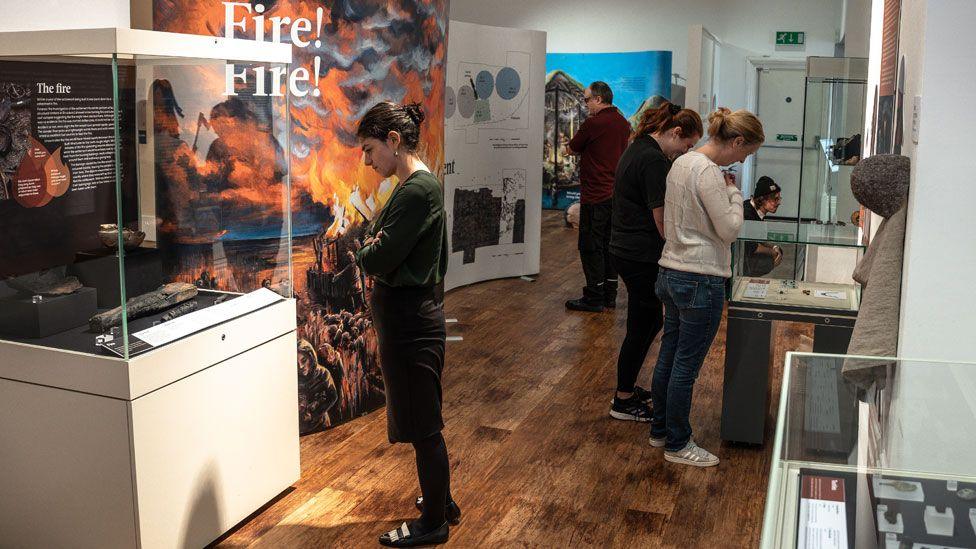
The display tells the story of how rapidly a fire took hold of the settlement, which archaeologists said was less than a year old
The exhibition, which gives a remarkable insight into the way people lived in the Bronze Age, has attracted the museum's highest visitor numbers for eight years.
The artefacts were unearthed at a Bronze Age settlement of wooden roundhouses built over a river channel at Must Farm at Whittlesey, Cambridgeshire.
Domestic items were deposited into the river silt after the settlement caught fire, where they remained until they were excavated eight years ago.
Fleeing villagers left behind the largest collection of Bronze Age artefacts ever discovered in the UK, including 200 wooden objects, more than 150 fibre and textile items, 128 pottery vessels and about 90 pieces of metalwork.
The excavation's discoveries are of national importance, yet its finds are staying local, about eight miles (12km) from where they were found.
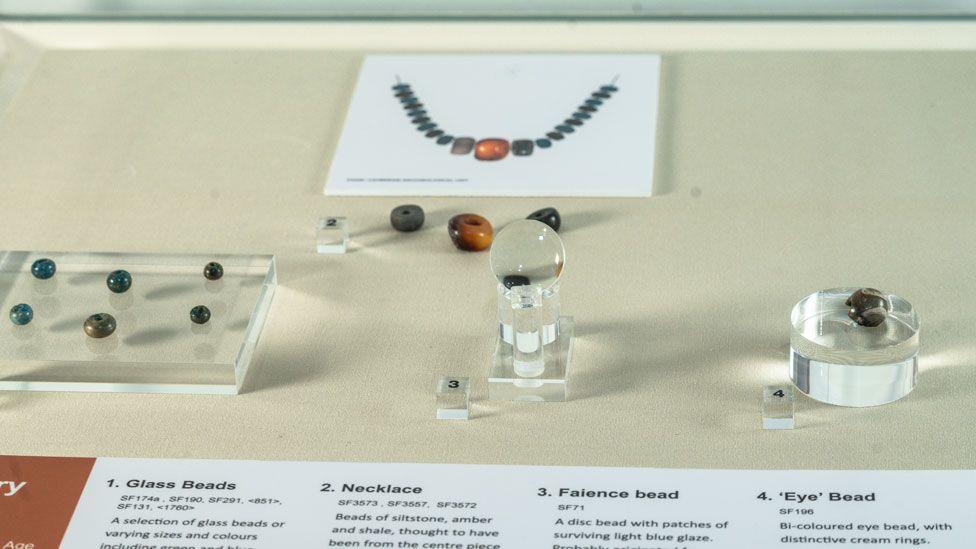
Those fleeing the fire left behind artefacts including striking glass beads in blue, green and turquoise
Exhibits include Bronze Age pottery fragments painstakingly recreated to reveal cooking ware and fine cups and bowls and a pot with a preserved, freshly cooked meal inside.
Tony Callandine, Historic England's east regional director, said the organisation was delighted it could support an extended run of the exhibition.
"Seeing objects that were used for cooking and everyday home life so long ago stirs the imagination and brings communities from the past closer to us today," he said.
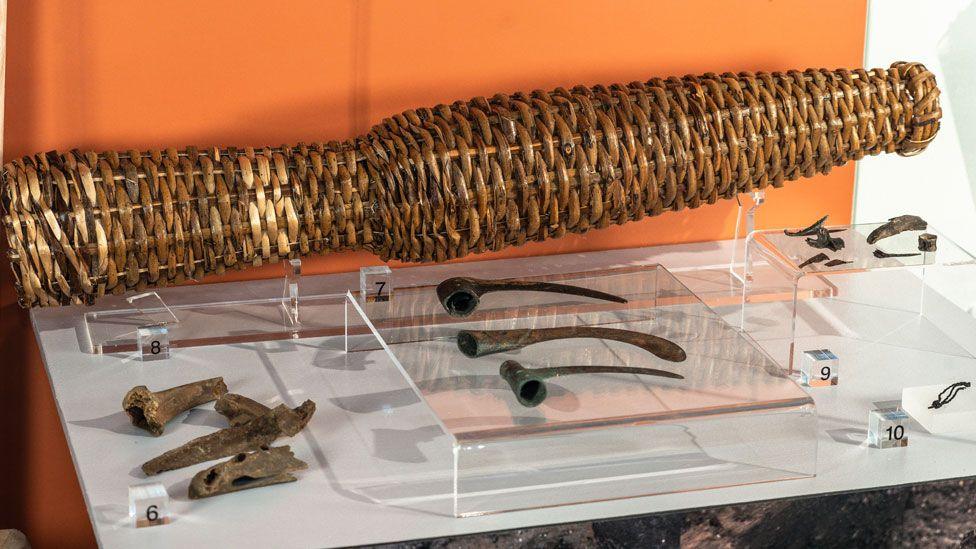
Replicas, such as the eel trap (above), are displayed alongside everyday work tools and fish and animal bones
Get in touch
Do you have a story suggestion for Peterborough?
Follow Peterborough news on BBC Sounds, Facebook, external, Instagram, external and X, external.
Related topics
- Published27 April 2024
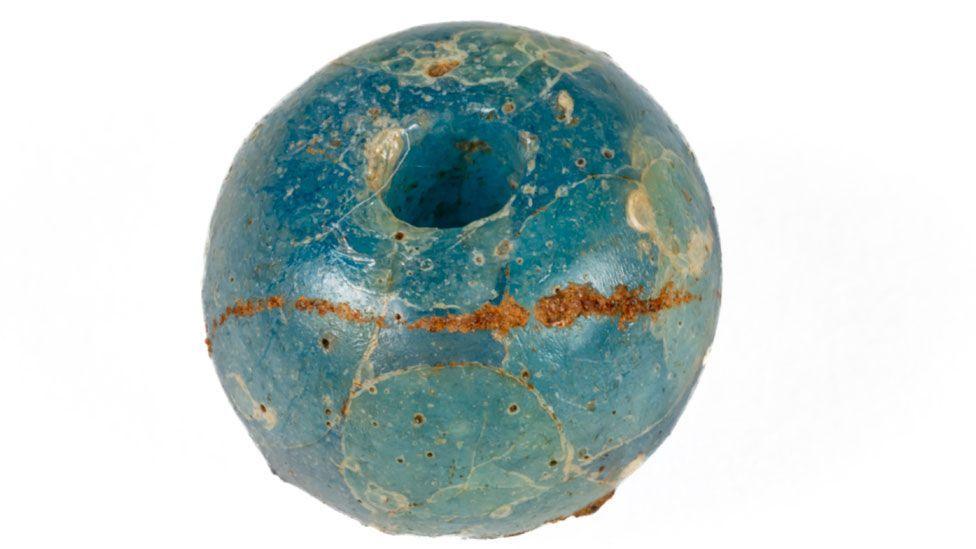
- Published26 July 2024
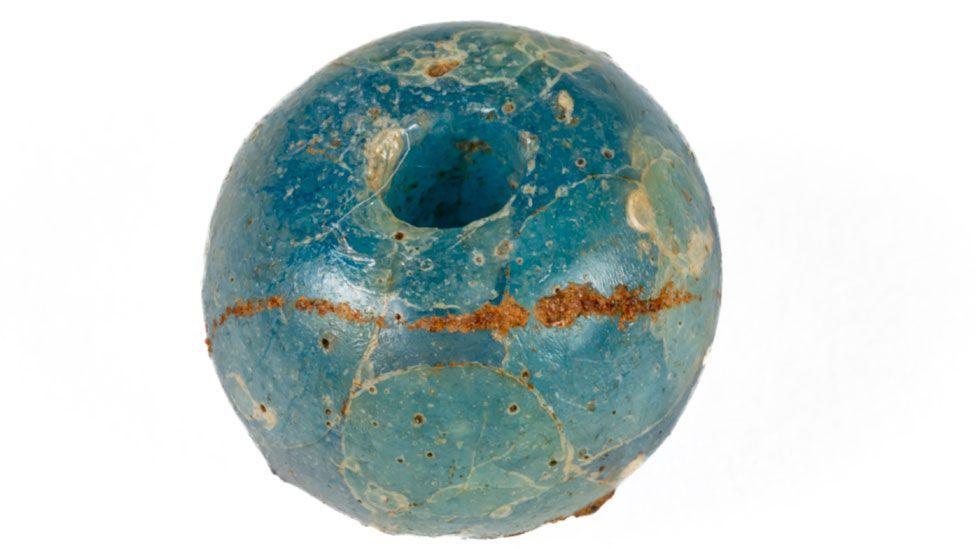
- Published26 April 2024
